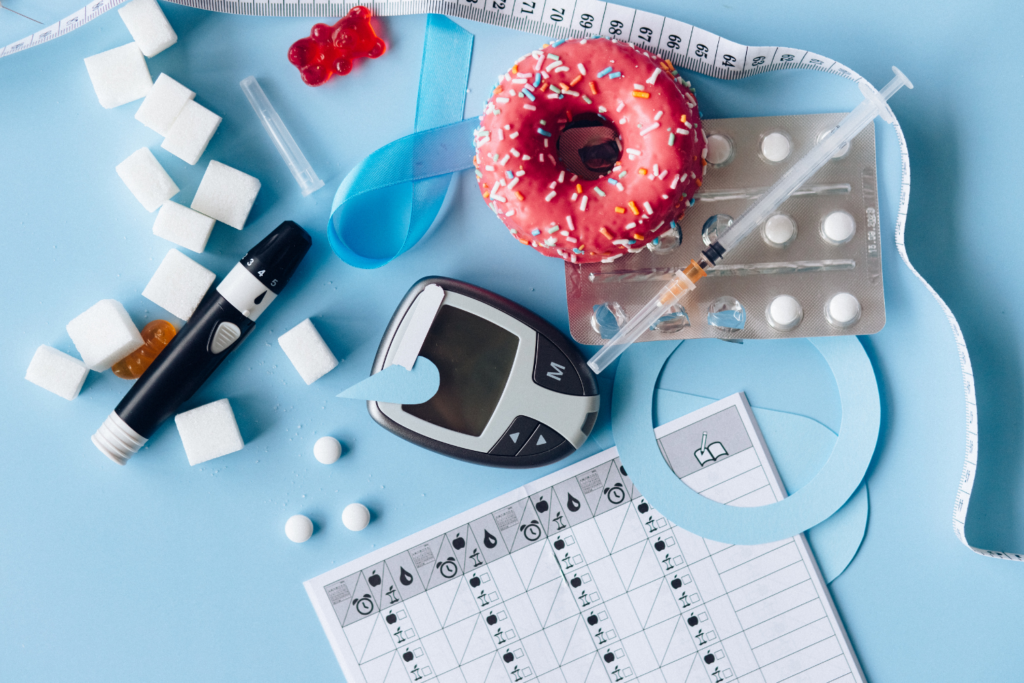Being Proactive is Key to Managing Diabetes

Glucose is the main sugar found in our blood and is our body’s main source of energy. We get glucose from the foods we eat. Insulin is a hormone produced in the pancreas and regulates the amount of glucose in the blood. When your body does not make enough insulin, or it stops responding to it, glucose builds up in the blood, resulting in Type I or Type II diabetes. Over time, both Type I and Type II diabetes can lead to multiple complications if not treated proactively.
Here are some ways to lower your risk of complications and keep your glucose levels in a healthy range.
Commit to managing your diabetes
Your care team can help with medications and support, but you must take your medications as prescribed. Focus on mindful eating and regular exercise; not on weight loss. Eat until you are no longer hungry, not until you’re full.
Do not smoke or use nicotine
Diabetes is a disease of small blood vessels. Smoking damages the small blood vessels in your body, which will lead to accelerated damage to vital organs.
Control your blood pressure and cholesterol
Again, increased blood pressure and cholesterol levels damage small blood vessels, which increases your risk for heart disease and stroke. When discussing treatment options with your provider, focus on risk reduction and not on just lowering a number.
Get checked out
Schedule regular visits with your care team, including annual foot and eye exams, and semi-annual dental exams. Typically you will need two to four visits per year with your provider depending on how well your blood sugars are controlled.
Keep your immunizations up-to-date
Diabetes lowers your immune system, which means an increased risk of certain infections. Routine vaccines such as influenza, COVID-19, pneumonia, hepatitis B, and shingles will help prevent illness and possibly hospitalizations.
Drink alcohol in moderation
Alcohol can increase or decrease your blood sugars. Men should limit themselves to two alcoholic drinks per day. Women need to limit themselves to one drink per day.
Take care of your mental health
A good night’s sleep and regular activity will help your mental health as well. If you need help with your mental health issues, please discuss further with your provider.
Be an active participant in your healthcare by prioritizing your health and avoiding excuses. Lowering your risk of complications, leads to improved quality of life.
